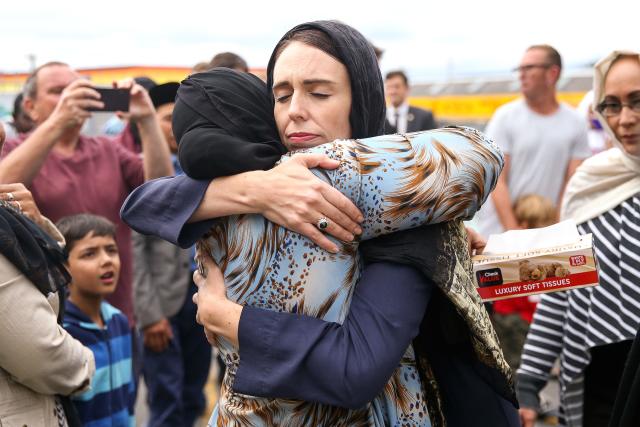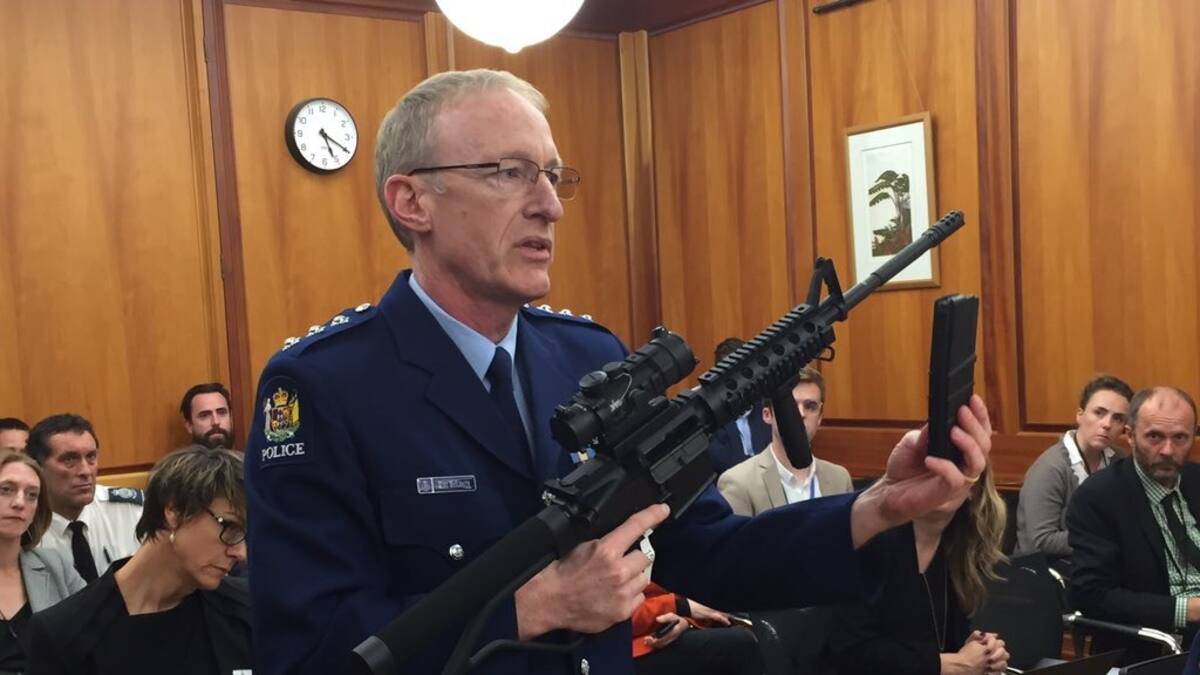U.S.New Zealanders have voluntarily turned in more than 10,000 guns following the mass shooting in Christchurch
Ryan W. Miller 51 minutes ago

More than 10,000 firearms have been turned into New Zealand police as part of a government effort to buy back guns following the Christchurch massacre, authorities said Monday.
New Zealand banned most automatic and semi-automatic weapons and components that modify existing weapons in the immediate wake of the shooting that left 51 people dead and scores injured at two mosques in March.
The country also established a buy-back program to allow gun owners to be compensated for turning in their weapons.
Since the voluntary program began in July, 10,242 firearms have been handed into police, and another 1,269 firearms have been handed in under an amnesty program, which allows people to turn in their guns without any questions about how or when they obtained them.
Gun laws worldwide: How gun laws in a dozen countries compare with New Zealand's new ban on semiautomatic weapons
More than 90 collection events have taken place across the country with more than 7,000 gun owners attending, police said.
"We have been really happy with New Zealand’s engagement and response to this process and we look forward to more people taking part in the buy-back scheme over the coming months," police said in a statement.
Police said the buy-back and amnesty programs end December 20.
Following the shooting, New Zealand Prime Minister Jacinda Ardern vowed swift action to change the country's gun laws. The accused shooter used legally purchased semi-automatic rifles with modifications during the rampage.
"On March 15, the nation witnessed a terrorist attack that demonstrated the weakness of New Zealand's gun laws," Ardern said at the time. "The guns used in this attack had the power to shoot continuously. The times for the easy availability of these weapons must end. And today, they will."
Gun laws and 2020 US election: For 2020 Democrats, hammering on gun control comes with energized, angry activists
She added, "We just want the guns back. ... It's about all of us. It's in the national interest, and it's about safety."
Ryan W. Miller 51 minutes ago

More than 10,000 firearms have been turned into New Zealand police as part of a government effort to buy back guns following the Christchurch massacre, authorities said Monday.
New Zealand banned most automatic and semi-automatic weapons and components that modify existing weapons in the immediate wake of the shooting that left 51 people dead and scores injured at two mosques in March.
The country also established a buy-back program to allow gun owners to be compensated for turning in their weapons.
Since the voluntary program began in July, 10,242 firearms have been handed into police, and another 1,269 firearms have been handed in under an amnesty program, which allows people to turn in their guns without any questions about how or when they obtained them.
Gun laws worldwide: How gun laws in a dozen countries compare with New Zealand's new ban on semiautomatic weapons
More than 90 collection events have taken place across the country with more than 7,000 gun owners attending, police said.
"We have been really happy with New Zealand’s engagement and response to this process and we look forward to more people taking part in the buy-back scheme over the coming months," police said in a statement.
Police said the buy-back and amnesty programs end December 20.
Following the shooting, New Zealand Prime Minister Jacinda Ardern vowed swift action to change the country's gun laws. The accused shooter used legally purchased semi-automatic rifles with modifications during the rampage.
"On March 15, the nation witnessed a terrorist attack that demonstrated the weakness of New Zealand's gun laws," Ardern said at the time. "The guns used in this attack had the power to shoot continuously. The times for the easy availability of these weapons must end. And today, they will."
Gun laws and 2020 US election: For 2020 Democrats, hammering on gun control comes with energized, angry activists
She added, "We just want the guns back. ... It's about all of us. It's in the national interest, and it's about safety."




